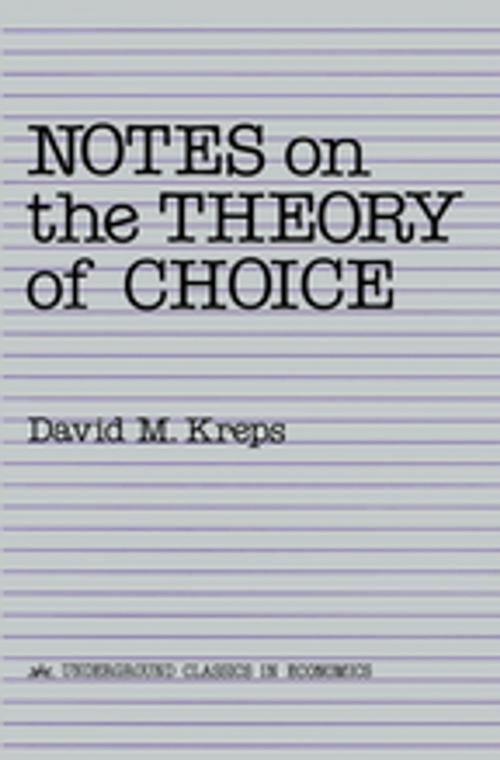| Author: | David Kreps | ISBN: | 9780429978241 |
| Publisher: | Taylor and Francis | Publication: | May 4, 2018 |
| Imprint: | Routledge | Language: | English |
| Author: | David Kreps |
| ISBN: | 9780429978241 |
| Publisher: | Taylor and Francis |
| Publication: | May 4, 2018 |
| Imprint: | Routledge |
| Language: | English |
In this book, Professor Kreps presents a first course on the basic models of choice theory that underlie much of economic theory. This course, taught for several years at the Graduate School of Business, Stanford University, gives the student an introduction to the axiomatic method of economic analysis, without placing too heavy a demand on mathematical sophistication.The course begins with the basics of choice and revealed preference theory and then discusses numerical representations of ordinal preference. Models with uncertainty come next: First is von Neumann?Morgenstern utility, and then choice under uncertainty with subjective uncertainty, using the formulation of Anscombe and Aumann, and then sketching the development of Savage's classic theory. Finally, the course delves into a number of special topics, including de Finetti's theorem, modeling choice on a part of a larger problem, dynamic choice, and the empirical evidence against the classic models.
In this book, Professor Kreps presents a first course on the basic models of choice theory that underlie much of economic theory. This course, taught for several years at the Graduate School of Business, Stanford University, gives the student an introduction to the axiomatic method of economic analysis, without placing too heavy a demand on mathematical sophistication.The course begins with the basics of choice and revealed preference theory and then discusses numerical representations of ordinal preference. Models with uncertainty come next: First is von Neumann?Morgenstern utility, and then choice under uncertainty with subjective uncertainty, using the formulation of Anscombe and Aumann, and then sketching the development of Savage's classic theory. Finally, the course delves into a number of special topics, including de Finetti's theorem, modeling choice on a part of a larger problem, dynamic choice, and the empirical evidence against the classic models.















